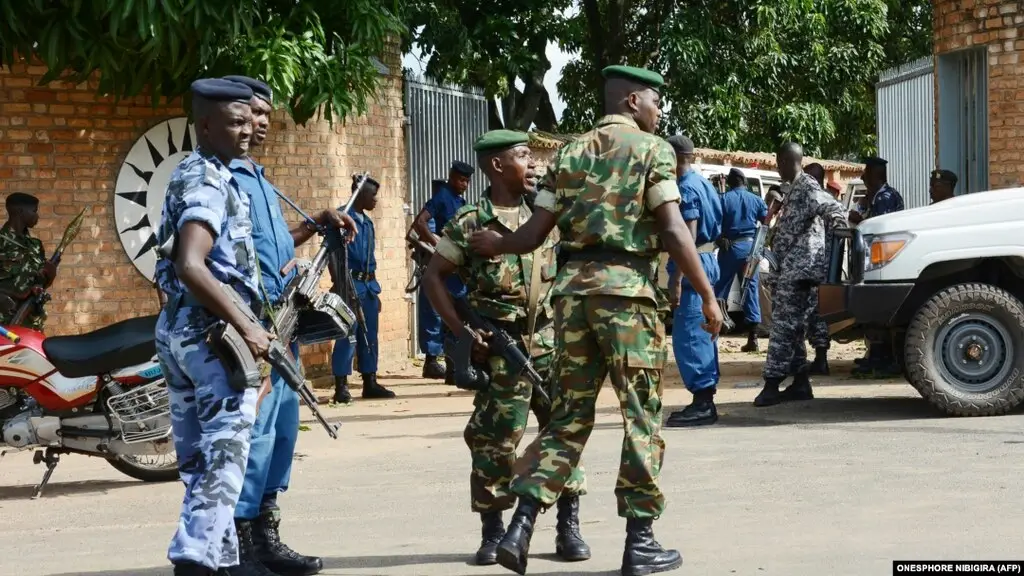On February 23, 2023, Burundi police arrested 17 men and seven women attending a seminar organized by MUCO Burundi, an HIV/AIDS-focused non-profit, in the capital, Gitega.
After ten days of interrogation, all 24 individuals were charged with “homosexual practices and incitement to homosexual practices,” according to Armel Niyongere, head of the human rights group ACAT Burundi, as reported by AFP on March 8, 2023.
A judicial source, speaking anonymously, confirmed the charges, which carry prison sentences under Burundi’s 2009 law criminalizing consensual same-sex acts with up to two years’ imprisonment.
Circumstances Leading to Arrests
The arrests followed a tip from neighbors who noticed teenagers entering MUCO Burundi’s office, prompting police intervention.
Searches uncovered “condoms and documents on the rights of homosexuals,” which authorities cited as evidence.
An activist, speaking anonymously to AFP due to fear of reprisals, called the accusations “absurd and baseless,” arguing there was no evidence to support claims of promoting homosexuality or engaging in same-sex acts.
Regional Anti-LGBTQ Sentiment
The case reflects a broader wave of anti-LGBTQ actions in East Africa, as noted by UN High Commissioner for Human Rights Volker Türk.
In a March 2023 update to the Human Rights Council, Türk expressed alarm over “growing agitation” against LGBTQ rights, citing both Burundi’s arrests and Uganda’s proposed “anti-homosexuality” bill, reintroduced in March 2023 to target the “promotion of homosexuality” and non-binary gender identities.
Türk called such discrimination “unthinkable” in the 21st century, arguing it hinders societal development.
Political Rhetoric and Context
Burundi’s President Evariste Ndayishimiye intensified anti-LGBTQ rhetoric, urging citizens on February 22, 2023, to “curse those who indulge in homosexuality” and treat them as “pariahs,” claiming divine disapproval.
This followed his December 2023 call to “stone” queer individuals, signaling a hardening stance.
The arrests occurred amid Burundi’s ongoing human rights challenges, with the government cracking down on dissent, as seen in the 2022 arrest of five activists and the 2023 sentencing of journalist Floriane Irangabiye.
Implications and Criticism
The charges, based on a 2009 law, underscore Burundi’s conservative stance on same-sex relations, rooted in cultural and religious norms.
The UN’s Volker Türk criticized the arrests as part of a regional trend suppressing LGBTQ rights, while local activists like Niyongere, exiled in Belgium since 2014, continue to challenge such policies.
The case highlights tensions between national sovereignty and international human rights standards, with potential impacts on Burundi’s relations with global bodies like the UN, especially as it navigates resumed aid from the US and EU despite ongoing rights concerns.






